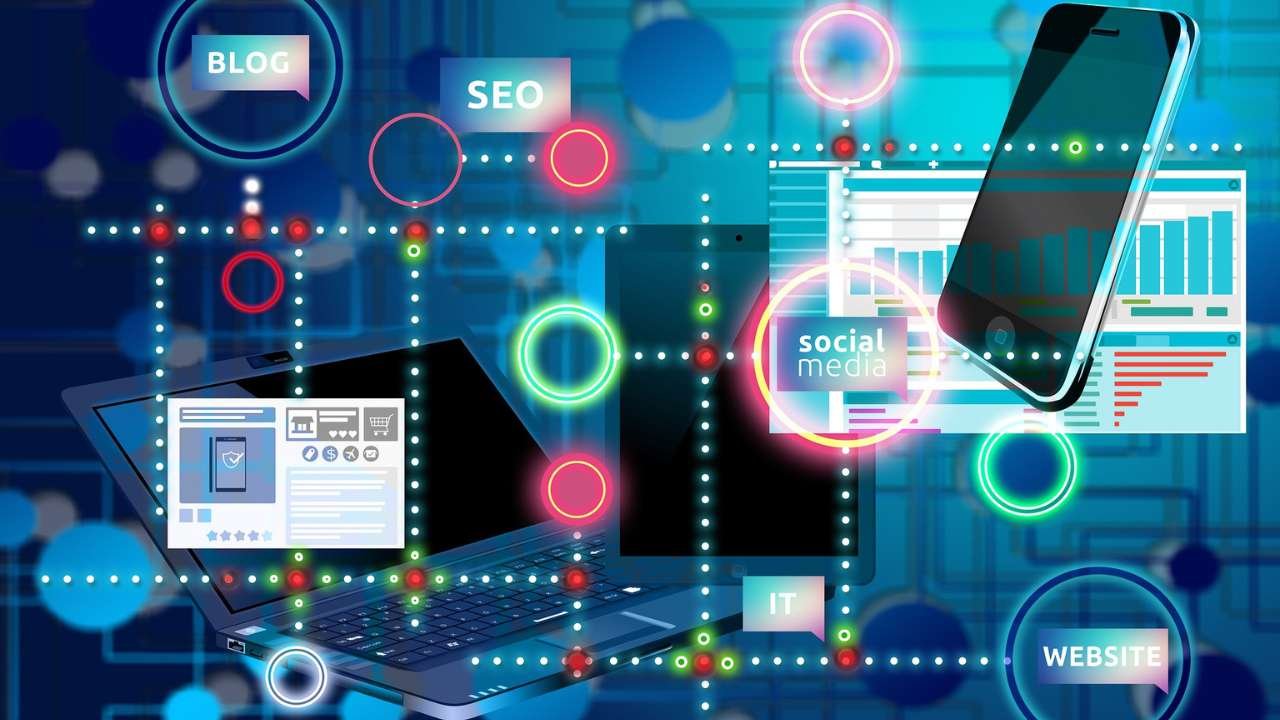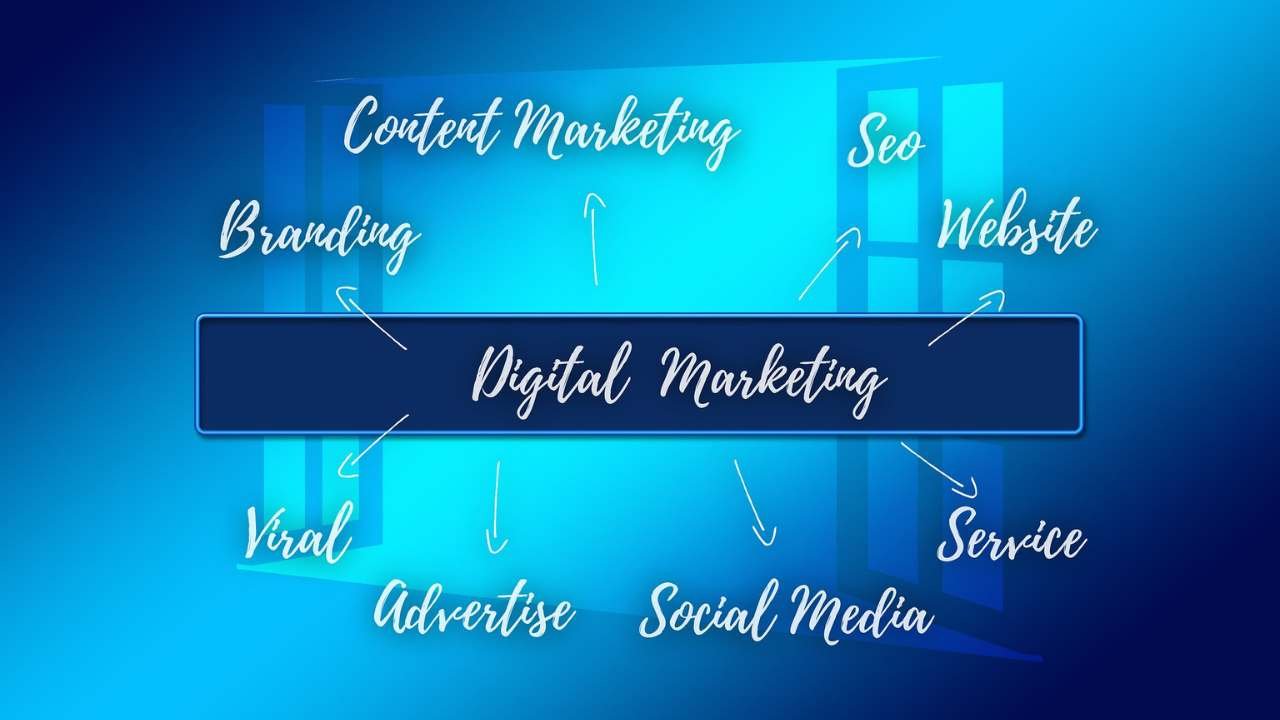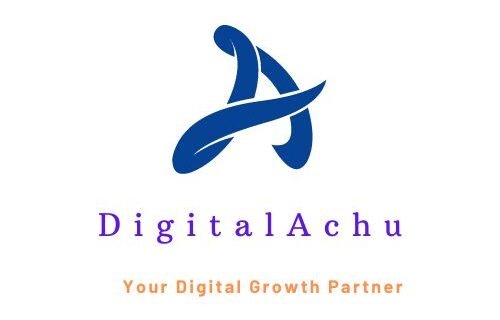Exploring the Role of AI in Digital Marketing

Introduction – Role of AI in Digital Marketing
AI technology has quickly become an invaluable asset to businesses hoping to outpace their online competition. When applied to digital marketing, this term refers to advanced algorithms and machine learning techniques which analyze vast data sets without human interference – revolutionizing engagement strategies across digital platforms.
Role of AI in digital marketing cannot be overstated. Before AI came along, marketing strategies relied mainly on intuition or broad demographics to target potential customers; with AI-powered tools available now to marketers they now possess powerful ways of analyzing consumer behavior patterns, preferences and buying intentions so as to create campaigns tailored specifically for individual customer needs.
Artificial Intelligence algorithms excel at quickly processing and analyzing digital channels’ data, uncovering insights that would otherwise go undetected. Businesses leveraging AI analytics gain greater insights into their target audiences, emerging trends, and market demands that enable more accurate market predictions.
AI’s effect on digital marketing spans every field imaginable – from content production and customer engagement, conversion optimization and ad targeting, as well as conversion rate optimization and targeting ads. AI-powered tools have become indispensable for modern marketers navigating the complexities of the online world.
Artificial intelligence’s impact on digital marketing is vast. Businesses that leverage its insights and automation capabilities can streamline efforts, identify growth opportunities, and stay ahead in an ever-competitive digital space. Join us as we investigate AI’s place within modern digital marketing practices – and discover its revolutionary potential!
AI for Digital Marketing

Artificial Intelligence (AI) uses advanced technologies like machine learning and natural language processing to bolster marketing strategies. AI algorithms mimic human intelligence, enabling computers to analyze data independently.
AI and machine learning offer marketers invaluable insights from vast data sets. By analyzing customer behavior and historical records, machine learning algorithms detect trends accurately predict future outcomes, segment audiences and enable marketers to customize content and offers to drive up engagement and conversion rates.
Natural Language Processing (NLP) allows computers to interpret and produce human languages. Marketers rely on NLP for sentiment analysis, content production and chatbot interactions; chatbots use NLP to offer instant assistance and tailored suggestions that enhance customer experiences.
Machine learning and NLP technologies empower marketers to enhance processes, personalize experiences, and realize tangible results in a fast-changing digital space. Businesses using AI stay ahead of competition by quickly adapting to consumer habits that shift, unlocking growth prospects and uncovering innovative opportunities.
Benefits of AI in Digital Marketing

AI integration in digital marketing brings many advantages that boost efforts and produce tangible results, with improved targeting and personalization among them. AI-powered algorithms analyze vast customer databases to deliver highly tailored marketing messages – increasing conversion rates.
AI enhances customer experiences by providing more relevant interactions across touchpoints, deepening relationships and driving loyalty. Furthermore, AI offers productivity gains by automating repetitive tasks such as data analysis and campaign optimization – freeing up time for strategic initiatives while supporting agile decision making processes.
AI offers marketers invaluable data-driven insights, helping them uncover patterns and trends within large datasets to inform more strategic campaigns. Automated tasks further streamline processes while increasing efficiency while decreasing manual workload.
AI technologies give marketers an exceptional set of tools for digital marketing. From improving targeting and personalization to increasing efficiency and productivity, AI opens new opportunities in today’s highly-competitive digital marketplace. Adopting AI solutions enables marketers to achieve more results in hypercompetitive environments.
Impact of AI in Digital Marketing

Let us discuss the Impact of AI in Digital Marketing, Artificial Intelligence (AI) has revolutionized digital marketing, replacing manual methods with automation and technology-driven solutions that bring increased efficiency and advancement for companies globally. AI’s impact has had an incredible effect on businesses worldwide.
AI in digital marketing is revolutionising marketing methods, offering more tailored strategies based on data. AI allows marketers to personalize messages for each individual customer based on his/her habits and preferences – increasing customer interaction while simultaneously increasing campaign effectiveness.
AI can also aid marketers in developing methodologies driven by data and dependent upon vast volumes of it for decision-making. AI-powered analytics allow them to gain greater insight into customers’ purchasing patterns while running more effective optimization campaigns real time for increased efficiency and greater business benefits.
AI technology has transformed customer interactions, from instantaneous chatbot support to personalized experiences that create stronger ties between customers and brands, thus leading to increased loyalty over time.
AI offers predictive analytics and forecasting services in digital marketing, allowing businesses to accurately predict trends in the future. AI algorithms analyze consumer behaviour to gain insight into preferences of consumers and campaign performance effectively, giving marketers an edge while staying abreast of ever-evolving markets.
AI’s influence on digital marketing channels cannot be understated. From replacing old methods with data-driven ones and improving customer interaction to offering predictive forecasting capabilities that improve forecast accuracy – AI promises to have a profound effect on marketing through digital channels in coming years, helping marketers to launch faster and more successful marketing campaigns which lead to greater success for all involved.
AI Tools for Digital Marketing

Lets explore the use of AI tools for digital marketing. Artificial Intelligence (AI) tools and platforms have quickly become essential parts of online marketing strategies, enabling marketers to streamline processes, enhance engagement, and boost performance. Here is an example of some AI apps currently redefining advertising:
Chatbots: AI-powered virtual assistants offer instant customer service and engagement, delivering immediate responses that improve customer experiences while keeping more customers loyal.
Predictive Analytics Software: Employing machine learning techniques, this software accurately forecasts consumer behavior to assist marketers in meeting customer needs faster and making data-driven decisions to surpass competition.
Content Optimization Tools: AI-powered content optimization tools enable SEO and engagement by analyzing language patterns, suggesting keyword enhancements and creating optimization strategies designed to increase organic traffic growth and conversions.
Marketing Automation Platforms: Marketing automation platforms utilize artificial intelligence-powered automation to simplify campaign management, from email to social media scheduling, this technology enables marketers to increase efficiency and engagement rates more easily than ever.
AI-powered platforms and tools have quickly become essential components of digital marketing, giving digital marketers tools that engage customers effectively, accurately predict customer behavior, automate campaigns across channels and scale them across channels and open new possibilities for effectiveness, growth and success within digital realms.
How Companies Use AI in Digital Marketing
AI has become increasingly integrated into online marketing strategies across industries to offer more tailored user experiences and increase efficiency. Here are real-life examples of How Companies use AI in Digital Marketing by embracing AI to enhance online marketing:
Amazon leverages artificial intelligence algorithms for targeted advertising and product recommendations based on customer purchasing history, increasing customer satisfaction while driving sales growth.
Netflix utilizes AI-powered recommendation algorithms to deliver tailored content suggestions for their subscribers, providing optimal satisfaction and experience.
Starbucks: For improved customer service on their mobile app, Starbucks utilizes AI-powered chatbots with instant assistance and feedback available 24×7.
Sephora uses AI-powered chatbots to deliver tailored beauty advice and product information, creating better shopping experiences and driving sales growth.
Grammarly uses AI as a writing assistant, providing real-time spelling, grammar and style suggestions in real time to increase writing efficiency and quality.
HubSpot uses artificial intelligence (AI)-powered tools to optimize website content, increasing SEO visibility and organic traffic growth while providing data-driven recommendations to marketers.
Google: Ads and Analytics employ AI algorithms for targeted advertising strategies, campaign performance evaluation and informing decision-making with more informed insights.
Adobe is using AI and prescriptive analytics on their Experience Cloud Platform to explore customer data, predict behavior, and create personalized customer experiences in order to increase engagement and conversion rates.
These examples demonstrate how AI assists companies with digital marketing efforts, from targeted ads and personalized recommendations, customer service and content production all the way through to customer experience enhancement and increased engagement for greater results online. By tapping its potential, businesses can provide improved customer experiences while increasing engagement for greater online results.
Conclusion
Artificial Intelligence (AI) has transformed digital marketing, changing how companies engage with clients and driving results. We explored Role of AI in Digital Marketing and its profound effect on digital marketing via disruption: targeting ads with targeted ads, personalized customer experiences and analytics-driven approaches; personalizing customer experiences via personalized ads or personalized customer experiences and analytics driven approaches are now possible due to AI tools and platforms; revolutionizing client interactions while improving campaigns as well as decision making based on information for better performance within today’s highly competitive environments.
An Emphasis on AI’s Vital Role:
AI plays an essential role in digital marketing, from its predictive analyses and personalized suggestions, through predictive modeling, to helping marketers discover new opportunities, drive innovation and stay ahead of their competition. Adopting AI technology isn’t simply beneficial; it is absolutely necessary in today’s ever-evolving digital marketplace.
Encouragement to Adopt AI Technologies:
Artificial Intelligence will become an ever-more essential force in digital marketing, so I advise readers to utilize its technologies. AI-powered analytics tools provide deeper insight into customer behaviors while chatbots provide customized customer support – adopting AI can help companies remain competitive, achieve greater results, and offer exceptional customer care for customers.

Pingback: What is digital marketing. its 4 merits, scope, importance
Pingback: Search Engine Optimization Best Practices for 2024